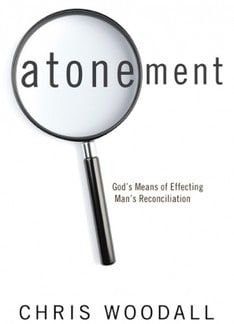Chris Woodall, of North-West University in South Africa, has produced a book adding to the growing list of publications on the doctrine of atonement. It comes as third in a series, following Covenant and Kingdom. I have not read the previous volumes and it was difficult to place Atonement’s perspectives in a broader context.
Woodall writes from an evangelical perspective with mild Calvinistic tendencies (p.27). He freely cites Berkhof, Lloyd-Jones, Hendriksen, Stott and others on the topic. The author gets close to what might be called Calvinism, but can hold back in surprising and original ways.
For instance, he has a section addressing John Owen’s The death of death in the death of Christ, but does not do justice to Owen’s position. He suggests that a more valid title would be The death of death in the resurrection of Christ. We wonder about the usefulness of this comment that hardly does justice to ‘death’ as understood by Owen.
Woodall distinguishes God’s purpose (the arrival point of the biblical narrative) from his plan (the preferred choice of means). Yet, if God’s plan is purposeful, is this distinction valid? Is it merely God’s purpose that is achieved in man’s atonement, or is it more profoundly the glory of God himself in salvation?
When the author speaks of the atonement being necessary and the means to bring God’s purpose about, this is not quite the same as the ‘necessity’ of the atonement in classical theological discussions.
This appears to result from Woodall’s view that what is lost and restored by atonement is a right relationship with the creator. The purpose of the atonement is to ‘effect the reconciliation of relationship between God and man’ (p.92). So man is reconciled, which is not quite God being reconciled to man.
Having gone through sections on the necessity and reality of the atonement, we arrive at its benefits. The author speaks with heart-warming appreciation of these, albeit stopping short of espousing limited atonement: ‘Scripture is not sufficiently conclusive to promote or dismiss it’ (p.128).
There is much to appreciate in this book, but one feels that the author, though approaching a theology of grace, is slipping away from it at the same time. I felt uneasy with this ambiguity. Is it — to use one of Woodall’s own expressions — a ‘cop out’?
Paul Wells
Eastbourne










